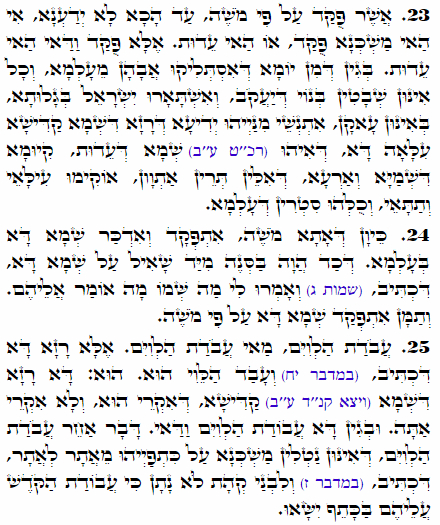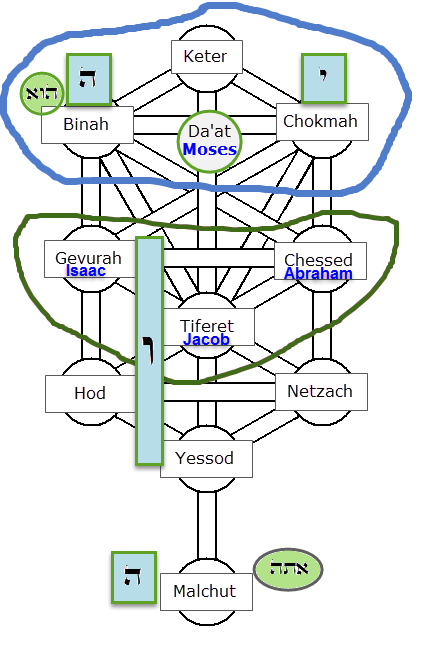Daily Zohar # 1769 – Pekudei – From ‘He’ to ‘You’

.
Hebrew translation:
24. כֵּיוָן שֶׁבָּא מֹשֶׁה, נִפְקַד וְנִזְכַּר הַשֵּׁם הַזֶּה בָּעוֹלָם. שֶׁכְּשֶׁהָיָה בַּסְּנֶה, מִיָּד שָׁאַל עַל הַשֵּׁם הַזֶּה, שֶׁכָּתוּב וְאָמְרוּ לִי מַה שְּׁמוֹ מָה אֹמַר אֲלֵהֶם. וְשָׁם נִפְקַד הַשֵּׁם הַזֶּה עַל פִּי מֹשֶׁה.
25. עֲבֹדַת הַלְוִיִּם. מַה זֶּה עֲבֹדַת הַלְוִיִּם? אֶלָּא סוֹד זֶה, שֶׁכָּתוּב (במדבר יח) וְעבַד הַלֵּוִי הוּא. הוּא – זֶה סוֹד הַשֵּׁם הַקָּדוֹשׁ שֶׁנִּקְרָא הוּא, וְלֹא נִקְרָא אַתָּה. וּמִשּׁוּם כָּךְ עֲבוֹדַת הַלְוִיִּם וַדַּאי. דָּבָר אַחֵר עֲבֹדַת הַלְוִיִּם – שֶׁהֵם נוֹטְלִים אֶת הַמִּשְׁכָּן עַל כִּתְפֵיהֶם מִמָּקוֹם לְמָקוֹם, שֶׁכָּתוּב (במדבר ז) וְלִבְנֵי קְהָת לֹא נָתָן כִּי עֲבֹדַת הַקֹּדֶשׁ עֲלֵהֶם בַּכָּתֵף יִשָּׂאוּ.
.
Zohar Pikudei
Continued from previous DZ
 The Zohar teaches us that after the passing of the Patriarchs,
The Zohar teaches us that after the passing of the Patriarchs,
Abraham – Chessed
Isaac – Gevurah
Jacob – Tiferet, the Israelites left in exile and forgot the connection to the upper name יה YH, which is the supernal Tabernacle.
Moses was elevated to the level of Da’at at the venet of the Burning Bush, when God revealed to him the name AHYH אהיה of Keter.
Moses made the connection to YH to be able to take the Israelites out of Egypt. That higher connection enabled Moses to reveal the Light of Redemption, connect Zeir Anpin to the Twelve tribes, and bring down the Torah from the YH (Chokmah and Binah) to the Holy Tabernacle, at the lower level of Malchut.
Note: The title is enigmatic and the video that will join this study later will explain the connection.
Hint: הוא ‘He’, is not known, his presence is not here (Binah). אתה ‘You’, is here and present (Malchut).
{||}

 Previous: Pekudei
Previous: Pekudei

